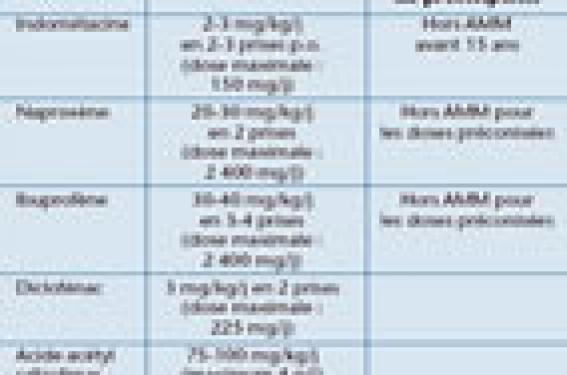Levofloxacin, an antibiotic of the fluoroquinolone class, is widely used to treat various bacterial infections. Although its effectiveness is acknowledged, it can also cause undesirable side effects, ranging from gastrointestinal disturbances to allergic reactions. Furthermore, certain contraindications, such as a history of tendinopathies or neurological problems, may restrict its use in specific patients. A rigorous assessment of benefits and risks is essential to ensure safe and effective management of patients.

Levofloxacin is an antibiotic of the fluoroquinolone class commonly prescribed to treat various bacterial infections. As a physician, it is imperative to understand the medical prescription of this medication, particularly the potential side effects as well as the contraindications that may limit its use. This knowledge ensures optimal patient management and prevents undesirable complications.
Understanding Levofloxacin
Levofloxacin works by inhibiting DNA gyrase, a crucial enzyme for DNA replication and repair in bacteria. This action is decisive in treating pulmonary, urinary, skin infections, and certain types of gastrointestinal infections. One of the significant advantages of levofloxacin is its ability to target a wide range of bacteria, including strains resistant to other treatments.
However, as with any antibiotic treatment, particular attention must be paid to possible side effects and prescription constraints that may influence the choice of this medication in a given patient. Special attention should be given to risk factors that could exacerbate these effects.
Common Side Effects of Levofloxacin
When a patient takes levofloxacin, it is essential to monitor potential side effects, which can vary from person to person depending on their overall health and the duration of treatment. Here are the most common undesirable effects:
1. Gastrointestinal Disorders: Levofloxacin may cause nausea, vomiting, and diarrhea. These symptoms are generally mild but may lead to dehydration in some patients, especially the elderly or those with a history of gastrointestinal discomfort.
2. Effects on the Central Nervous System: Some patients report dizziness, headaches, or sleep disturbances. In rarer cases, severe reactions such as seizures or acute confusion may occur, particularly in those with a history of neurological disorders.
3. Dermatological Reactions: Skin rashes, itching, or allergic reactions may appear. Although generally temporary, these require prompt evaluation to avoid more severe complications like Stevens-Johnson syndrome.
4. Tendinopathies: Levofloxacin has been associated with tendon ruptures, particularly the Achilles tendon, especially in older individuals, those taking corticosteroids, or with a history of tendon issues. Therefore, special attention should be paid when prescribing this medication.
5. Cardiovascular Effects: Although rare, heart rhythm changes, including arrhythmias, have been observed. Patients with a history of heart problems should be closely monitored.
Contraindications of Levofloxacin
Every medication has its limits, and levofloxacin is no exception. Before prescribing this medication, it is fundamental to assess the following contraindications that may make its use inappropriate:
1. Hypersensitivity: Patients who have shown hypersensitivity reactions to levofloxacin or other fluoroquinolones should avoid this treatment. It is crucial to always check medical history for this type of reaction.
2. Renal Insufficiency: Due to the renal elimination of levofloxacin, its use is not recommended in patients with severe renal insufficiency without dosage adjustment. Creatinine levels should be regularly monitored to avoid drug accumulation.
3. Pregnancy and Breastfeeding: The use of levofloxacin is contraindicated in pregnant women and breastfeeding mothers due to the potential risk to the fetus or infant. It is preferable to opt for safer alternatives when possible.
4. Children and Adolescents: Due to potential effects on joint cartilage, levofloxacin is generally avoided in growing children and adolescents. Risks must be weighed against benefits in the context of specific therapy.
5. History of Seizures: Patients with a history of seizures should undergo thorough evaluation before being prescribed levofloxacin, as the medication may exacerbate this condition.
Additionally, co-prescribing levofloxacin with medications that have effects on the central nervous system, such as antidepressants and sedatives, requires increased vigilance. Drug interactions may raise the risk of serious side effects.
It is essential to conduct a thorough review of medical history and current treatments before starting levofloxacin therapy. A good practice is to educate patients on warning signs that require immediate medical attention, including the onset of joint pain, skin rashes, or signs of respiratory depression.
Continuous monitoring and follow-up appointments are crucial to ensure that patients receive effective treatment while minimizing associated risks. As a practitioner, being informed about the side effects and contraindications of levofloxacin contributes to the safety of medical practice and promotes the well-being of patients under treatment.

FAQ on Medical Prescription: Side Effects and Contraindications of Levofloxacin
A : The most common side effects include nausea, vomiting, gastrointestinal disturbances, skin rashes, and joint pain.
A : Yes, the contraindications include hypersensitivity to levofloxacin or other fluoroquinolones, as well as in patients with a history of tendinitis or tendon tears.
A : Levofloxacin can cause severe side effects such as allergic reactions, neurological disorders, and an increased risk of tendon problems, especially in the elderly.
A : Levofloxacin may interact with certain medications, including antacids containing calcium, magnesium, or aluminum, which may reduce its effectiveness.
A : An overdose can lead to symptoms such as severe nausea, vomiting, dizziness, and confusion. It requires immediate medical attention.
A : Levofloxacin may affect the ability to drive or operate machinery due to possible dizziness or drowsiness in some patients.
A : Regular follow-up with kidney function tests and clinical evaluations is recommended to monitor for any potential side effects.
A : In case of an adverse reaction, it is crucial to contact a healthcare professional to discuss possible modifications to the treatment and report the adverse effect.








